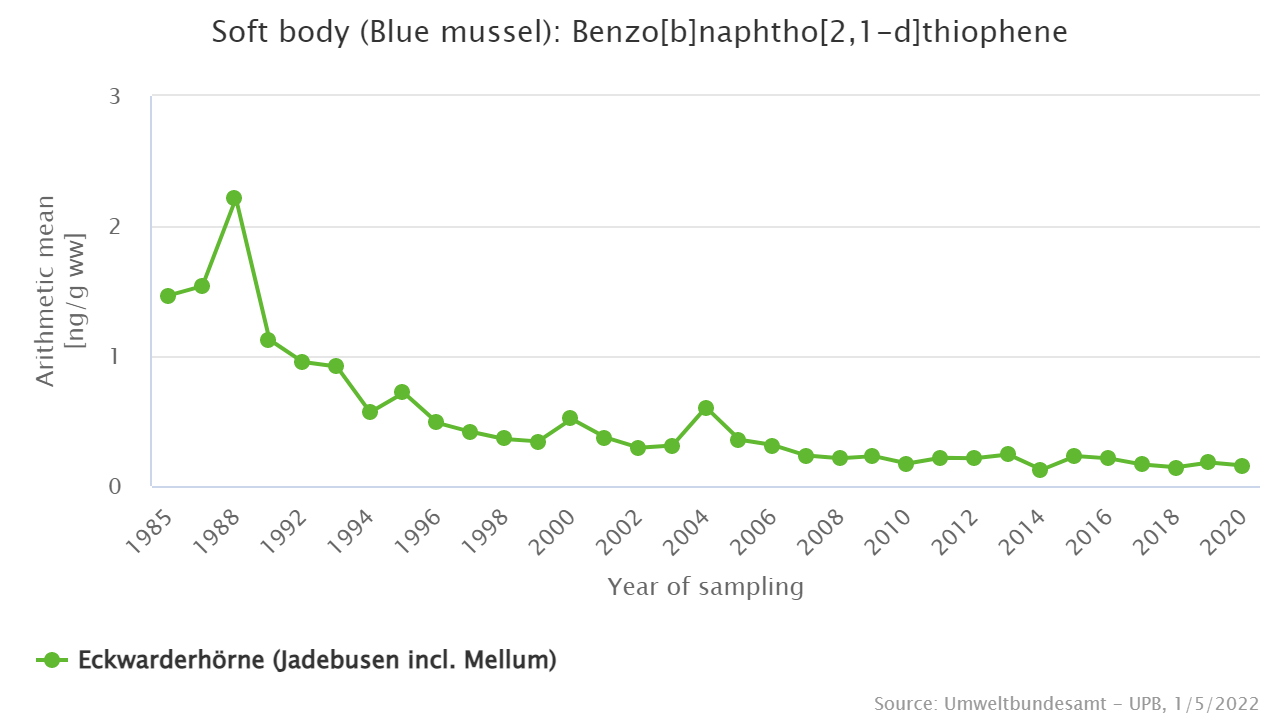Benzo[b]naphtho[2,1-d]thiophene in blue mussels from the Jadebusen
Significant decrease in contamination since the late 1980s
Benzo[b]naphtho[2,1-d]thiophene is present in fossil fuels and is produced by incomplete combustion of organic material. It is relatively persistent and accumulates in organisms.
Since the late 1980s, benzo[b]naphtho[2,1-d]thiophene levels have significantly decreased in blue mussels from the Jadebusen. This is probably related to improved emission protection by the industry e.g. in Wilhelmshaven and Nordenham, cities situated at the Jadebusen. Another possible reason may be a decline in oil and diesel pollution and in exhausts from ship engines in the Jadebusen.

Fig. 1: Benzo[b]naphtho[2,1-d]thiophene in blue mussels from the North Sea sampling site Eckwarderhörne
Updated at: 2022-01-05
Recommended profiles
Specimen
-
One of the most important edible mussel species common in the North and Baltic Sea
Analytes
-
Polycyclic aromatic hydrocarbon with three six-membered rings and one five-membered ring with a single sulphur atom
Sampling area
-
National park in the world largest connected sand and mud flats.